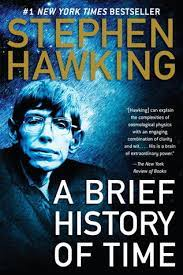Main Theme of " A Brief History of Time"
The theme of the book "A Brief History of Time" by Stephen Hawking is an explanation of the basic concepts of physics and cosmology, such as the nature of space and time, the big bang theory, and the possibility of black holes and a unified theory of everything, in an easy-to-understand language for a general audience. The book also explores the history and development of these concepts and the impact they have on our understanding of the universe. Additionally, it also talks about the limitations of human understanding of the universe and the role of theoretical physics in shaping our understanding.
Summary
"A Brief History of Time" is a book written by Stephen Hawking, a renowned theoretical physicist and cosmologist. The book was first published in 1988 and has since become a classic in the field of science. The book is an attempt to explain complex scientific concepts such as space, time, and black holes in a way that is easy for non-scientists to understand.
The book begins with an introduction to the history of science and the questions that scientists have been trying to answer for centuries. It then delves into the concept of space and time, and how they are connected. Hawking explains the theory of general relativity, which describes how gravity affects the shape of space and time. He also introduces the concept of black holes and how they are formed.
One of the main themes of the book is the search for a unified theory of physics, which would explain all the forces of nature and how they are related. Hawking explains the current theories of physics, such as quantum mechanics and the theory of relativity, and how scientists are trying to combine them into a single theory. He also discusses the concept of the "big bang" theory, which is the current leading theory of the origin of the universe.
The book also explores the concept of the laws of thermodynamics, which describe how energy is conserved in the universe. Hawking explains how the laws of thermodynamics are related to the concept of entropy, which is a measure of the disorder in a system. He also discusses the concept of the "arrow of time," which is the idea that the universe has a direction in which time flows.
Hawking also explores the concept of the "multiverse," which is the idea that there may be many universes existing simultaneously. He explains how this idea is supported by the theory of quantum mechanics, and how it could help to explain some of the mysteries of the universe.
The book concludes with a discussion of the human condition and the role of science in understanding the world. Hawking argues that science has the potential to improve the human condition and to help us understand our place in the universe. He also talks about the future of science and the questions that scientists will continue to explore in the coming years.
In summary, "A Brief History of Time" is a book that provides an accessible and engaging introduction to some of the most complex scientific concepts of the modern era. Written by one of the most renowned scientists of our time, it offers a glimpse into the mind of a brilliant thinker and the questions that scientists have been trying to answer for centuries. The book is a must-read for anyone who is interested in science and the mysteries of the universe.












